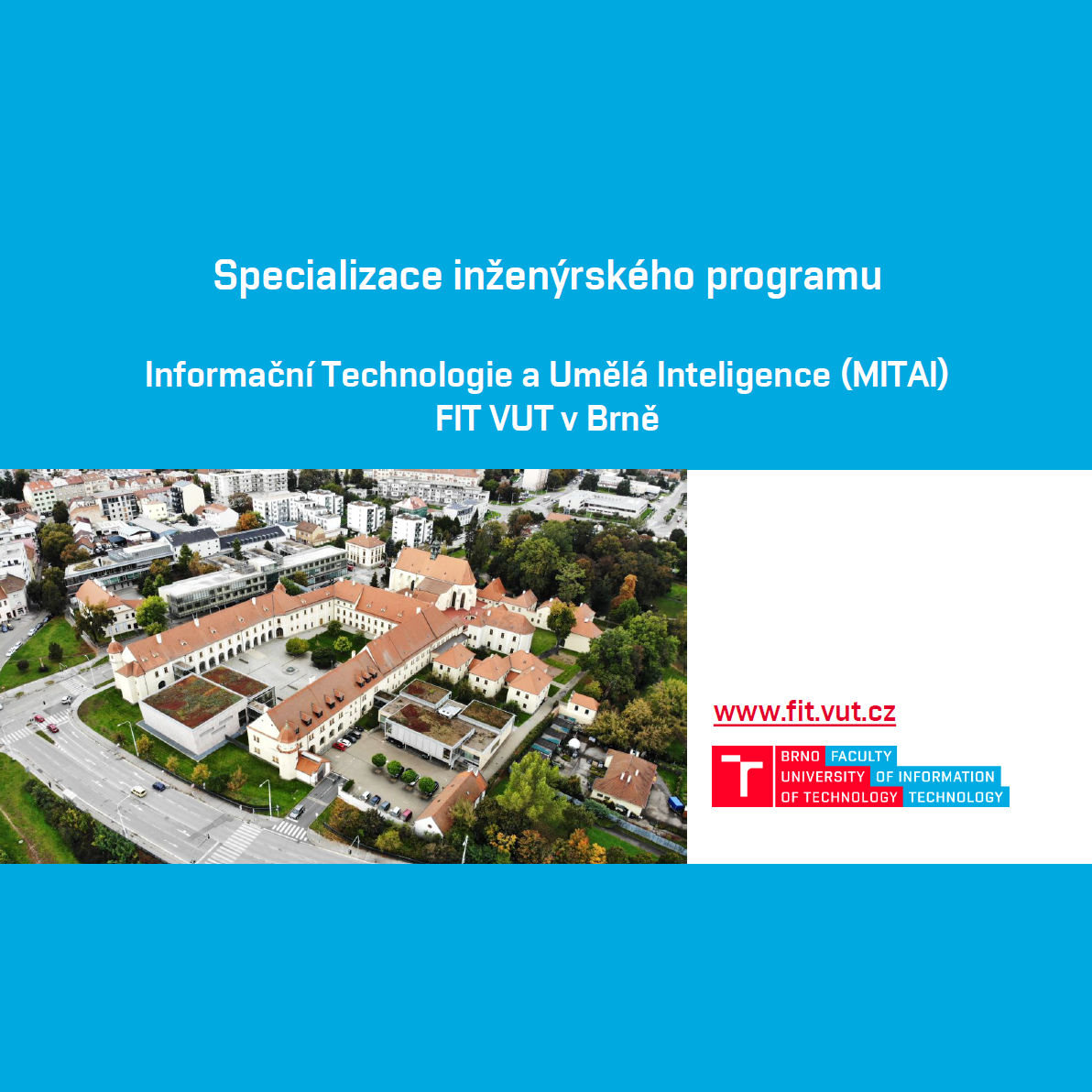High Performance Computing
Acad. Year 2023/2024Full-Time Study2 Years Title Awarded Ing.
Within the specialization, you will focus on the use of supercomputing technologies in the field of highly demanding computations in physical modelling, biology, chemistry, medicine, artificial intelligence or economics. You will learn to describe complex systems using mathematical apparatus, understand numerical methods and their properties, and become experts in the design, implementation, optimization and testing of programs with respect to performance and power consumption. You will gain hands-on experience in developing applications on high-end supercomputers based on a combination of classical processors, graphics cards or FPGA accelerators.
Information technology moves the world
-
79 %
students gain practical experience
-
98 %
students successfully pass the State Final Examination
-
99 %
graduates find work in the month
-
40 938 Kč
is the average starting salary for graduates
1st Year
Compulsory Programme Courses - Winter
Compulsory Programme Courses - Summer
Compulsory Specialization Courses - Summer
The common basis of the programme
The common core of the program consists of courses that will give you the knowledge important for all IT engineers:
- Computation Systems Architectures will teach you how to think about how your code will run on modern computing platforms, how to think about programming in a way that makes the most efficient use of resources, i.e., that your application makes the best use of the power of modern platforms, makes efficient use of system memory resources, and is also efficient in terms of energy consumed.
- Functional and Logic Programming will teach you that although classical imperative programming is a very widely used paradigm and is very close to machine-level implementation, there are other approaches that will give you a new perspective on some key problems and help you get novel and often more efficient solutions to them.
- Modern Trends in Informatics (in English) you need to know to see where the field is going and what to expect in practice in a few years.
- Parallel and Distributed Algorithms is a course that will show you the patterns, limits, and pitfalls of parallel and distributed algorithmic solutions and the associated synchronization mechanisms, without which you will hardly succeed in solving many of the more complex problems.
- Statistics and probability is the right hand of every engineer to process numerical results of experiments or data obtained while running your application, analyze them and learn from them to make further decisions is almost his daily bread.
- Theoretical Computer Science shows the limits of computer science capabilities through formal languages and mathematical models of computation. This is the only way to understand whether your problem is even solvable and, if so, with what resources and means to prove it.
- Data Storage and Preparation, especially big data, and extracting knowledge from it is a valuable art to any computer scientist. It is a key aspect that strongly influences the effectiveness of many solutions and applications.
- Artificial Intelligence and Machine Learning is a course where you will learn how to teach computers to understand our world and make them solve problems that are easy for humans but difficult for an algorithmic machine to handle.
Recommended course compositions
Recommended course composition NHPC 1
1st year of study, winter semester
- Computation Systems Architectures
- Hardware/Software Codesign
- Statistics and Probability
- Theoretical Computer Science
- Distributed Application Environment
1st year of study, summer semester
- Data Communications, Computer Networks and Protocols
- Functional and Logic Programming
- High Performance Computations
- Matrices and Tensors Calculus
- Parallel and Distributed Algorithms
- Practical Parallel Programming
- Advanced Operating Systems
2nd year of study, winter semester
- Artificial Intelligence and Machine Learning
- Data Storage and Preparation
- Parallel Computations on GPU
- Semester Project
- Static Analysis and Verification
2nd year of study, summer semester
They will pass on all their knowledge and hold you in difficult moments
Doc. Ing.
Jaroš Jiří
Ph.D.
Teaches Computation Systems Architectures providing detailed information on the modern processor architectures and their efficient programming. You can also meet him in Practical Parallel Programming and Parallel computing on GPUs. These courses introduce the area of high performance computing, artificial intelligence and data mining on top supercomputers.
Doc. Dr. Ing.
Fučík Otto
He teaches the Hardware / Software Codesign course, which focuses on various aspects of embedded system design at the system level. He uses his experience from teaching at universities abroad and practical knowledge of designing complex computer systems.
Doc. Dr. Ing.
Hanáček Petr
Ing.
Šátek Václav
Ph.D.
He teaches the High Performance Computations course, that shows students how to effectively solve technical initial value problems and differential equations. He closely cooperates with IT4Innovations VŠB-TU Ostrava on research theme - contact problems in computing fluid dynamics. He also guarantees the course Electronics for Information Technology.
What are we talking about?
-
Food and the ways in which we obtain it can seem like an utterly mundane matter, associated with necessity rather than creativity. For many people on the planet, regular access to food is not a given, and for those who have it, it is associated with mundanity. …
-
She was discouraged from studying computer science, but today she is gaining success in the field of quantum circuit simulation
First place in the 8 z VUT competition, inclusion of the bachelor thesis in the programme of a prestigious international informatics conference. These are just some of the successes celebrated by Sára Jobranová, a student of the Master's programme Information Technology and Artificial Intelligence at the Faculty of Information Technology BUT. …
Come to FIT!
Other Master
Specializations
-
Application Development
-
Bioinformatics and Biocomputing
-
Computer Graphics and Interaction
-
Computer Networks
-
Computer Vision
-
Cyberphysical Systems
-
Cybersecurity
-
Embedded Systems
-
High Performance Computing
-
Information Systems and Databases
-
Intelligent Devices
-
Intelligent Systems
-
Machine Learning
-
Mathematical Methods
-
Software Engineering
-
Software Verification and Testing
-
Sound, Speech and Natural Language Processing
